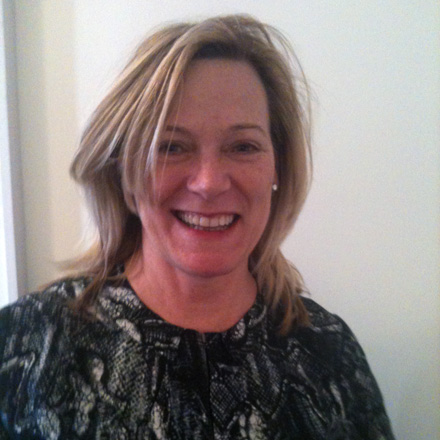 Tweet
Tweet
Featured on Jan 14, 2011
Deborah Buresh Jackson
"I invest in entrepreneurs with my time and my money. I want them to succeed & want them to make the world a better place."
Bio:
Columbia MBA, Wall Street veteran, started company, launched new businesses. Health care technology, New York New Media in 1990s. Golden Seeds Investor. Mentor to entrepreneurs. Judge for tech start ups @Vator Splash NYC, supporter of many non-profits, Board of Director and Trustee.
- Title: Managing Director at Golden Seeds
- Age: 58
- Location: Union Square
- Contact: @dbdj1007
Golden Seeds invests in companies in a huge range of industries, from diapers and soda to fiber-optics and biomedical, how does the company have the expertise to advise such drastically different companies?
Golden Seeds is a club of 160 angel investors the majority of whom are women. We have members in 4 locations: in San Fran, NYC, Boston and Philadelphia. The angel investors are accredited investors and meet those SEC qualifications and have the resources and expertise to make risky investments. We operate by screening early stage companies and then as a group evaluating many aspects of the business because we have a broad range of expertise in our group. Our investors tend to be older and have had successful careers in various industries including: technology, internet businesses, consumer products, media and publishing, finance, medicine, etc. We consider a broad range of companies because good companies are not limited to one sector and it is a good idea as an investors to diversify a bit among asset classes so that if one sector tanks there are other options. The benefit of our approach is that we leverage expertise and resources. We pay an annual fee to join the club and every investor is expected to help on the due diligence process for companies. Once we found a company we work with the founders with introductions and expertise all along the way. We have a very collaborative and supportive process and I think it is very effective because every early stage company needs a range of advice from financing, product development, strategic partnerships, pricing, revenue models, social media, etc. Golden Seeds raises anywhere from $300,000 for a company to our latest cloud computing company, where we raised a total of $4.5 million by syndicating with tech coast angels and other early stage investors.
The financial industry has traditionally been known as a field dominated by men, while the Internet has a reputation for democratizing information and lowering barriers, do you think this is true? Are there any industries that you view as exceptionally supportive of women leaders and entrepreneurs?
Yes the financial services field has been dominated by men. I was one of a few women who went to Goldman Sachs in 1980 from Columbia Business School. Many industries are dominated by men. I attend many tech events and I generally see more men than women. I do see and know plenty of really capable female founders and women coders and programmers. Two rising stars are Sara Chipps and Venessa Hurst who founded an organization called Girl Develop It where they teach sold out classes in python and RoR to female programmers. I really look for the smartest products and best companies and there are plenty that are founded by women and men. There is no lack of opportunity as an investor or founder.
You are involved with many New York non-profit organizations like the Heart and Soul Charitable Fund who helps to feed the homeless and Project Sunshine Inc. who provides services to chronically ill children. As a business person, how do think is the right way to measure the success of such organizations? In addition, have you seen an increase in interest lately in social entrepreneurship?
I had 2 majors at Columbia Business School. One in finance and one in non-profit management so I know a lot about non-profits and their challenges. There are as hard to manage as any early stage or for-profit company. I like non-profits because they tend to be mission driven or try to make the world better. They generally help people but they have their own challenges which is they need to raise money all the time and never have enough. They tend to rely on volunteers with mixed results. There are ways to evaluate the effectiveness of non-profits by looking at ratios of how much money they spend on over head vs, going into services, etc. Even non-profits have competition and should probably consolidate. Right now there are a few feeding programs that do the same thing. They could reduce overhead costs by consolidating and allowing more money to go to food to feed more. There is an organization that reviews non-profits called Guide Star. There seems to be more interest in Social Entrepreneurship since I was at Business School in 1980. I was invited to be a guest speaker not too long ago at Columbia B School to talk to students about to serve effectively on a non-profit board. The class was packed and I don't remember such a thing when I was there.
We’re interested in your opinion of our “females” filter option. Some have said that it is a great feature and is empowering, while others said that setting women apart from Developers, Designers, Founders, etc. is not the way to be more inclusive. What are your thoughts on this filter and the types of reactions that people are having?
I think there should not be any filters. There are lots of brilliant ideas out there, lots of amazing founders and you never know where the next great idea will come from. I think you get better results if the process allows all ideas and all inputs. The market for new products is huge. It spans all demographic, socioeconomic categories, male and female around the entire world. I would just ignore any reactions and do what you think is right.